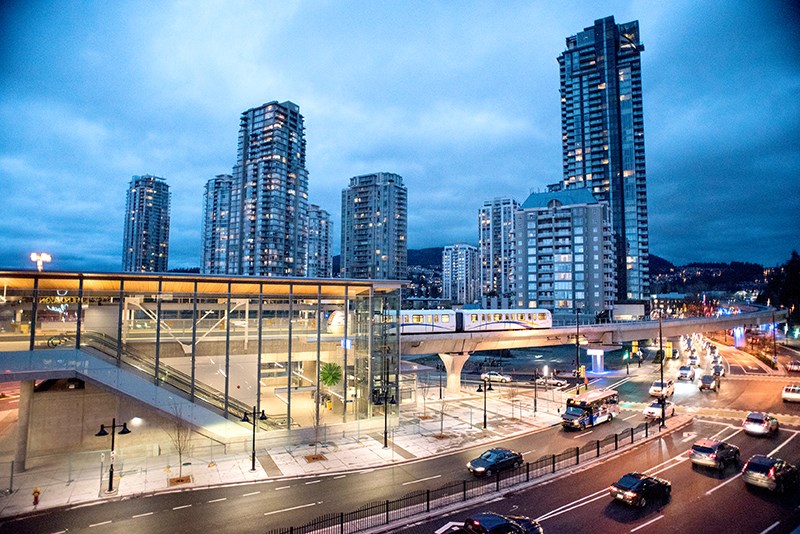Developers will have to kick in for transit if a new development cost charge proposed by TransLink gets provincial government approval.
Supported by both the TransLink board and the Mayors’ Council, the new development cost charge (DCC) for transit investment would raise $20 million a year and go towards projects such as an additional SeaBus, more SkyTrain cars, more West Coast Express trains and upgrades to Expo/Millennium line and Canada Line stations and systems.
“This is a small tool, to use non-tax revenue and capture a little bit of the property value from density around around stations,” said Coquitlam Mayor Richard Stewart, who supports the proposal.
How TransLink would pay for its share of transit improvements has been a longstanding issue with Metro Vancouver mayors, who balked at hiking property taxes to pay for transit. Voters also nixed a hike in sales taxes and the provincial government has been opposed to various other tax tools over the years.
Now, the region’s mayors hope the province will approve the proposed DCC so projects can proceed.
“I hope that it is straightforward,” Stewart said, “but time and time again, the province has not supported in principle the regional source of revenue for transit and has failed to support the specific proposals put forward.
“That is frustrating because it means that the Expo line upgrades that are long overdue, some of those can’t go ahead because the region has been strapped for cash. We know what happens when you don’t keep an aging piece of infrastructure in good repair: It breaks down more often. We also really need to find a way to move around another 500,000 to one million people without adding cars,” Stewart told The Tri-City News.
The proposed DCC would be structured in a way similar to charges already levied by local government, such as those for sewage, water and road infrastructure, and will be waived for affordable rental housing projects.
Residential rates would be between $1,200 and $2,100 per unit of new development, with non-residential rates likely between 50 cents and $1 per square foot, but more consultation is needed before the final rates are decided.
One concern is whether adding more charges to new units will make them more expensive in an already tight and pricey housing market. But the mayors’ council and TransLink say the rates are low enough that they can be borne by developers without slowing down development, even in areas away from transit, where profit margins are tightest.
“A good amount of the DCCs that will be collected are made possible by the transit, they are coming from densification that is occurring around transit stations,” Stewart said.
But developers that have already purchased their land will be stuck with the costs, notes Anne McMullin, president and CEO of the Urban Development Institute, a development industry association, and she’s concerned that the fees could rise without a cap. Although supportive of a plan to get funding for needed transit improvements, McMullin is concerned about the impact of the new DCCs on housing affordability.
“To say it doesn’t have an impact, of course it does somewhere, if it’s not grandfathered. It is relatively modest but again it’s on top of other fees. If it’s tacked on afterward, after you’ve purchased the land, then it does get passed on.
“At least developers, you’ve got two years, you can take into consideration. If we know far enough in advance, then you can mitigate it," she said.
In the meantime, the UDI is asking TransLink to institute a cap so the fees aren’t arbitrarily increased over time.
“This shouldn’t be an ongoing cash cow because then it does impact long-term affordability. [But] we support the 10-year plan… We know you have to have a proper land use and transportation plan in order to address affordability,” McMullin said.


